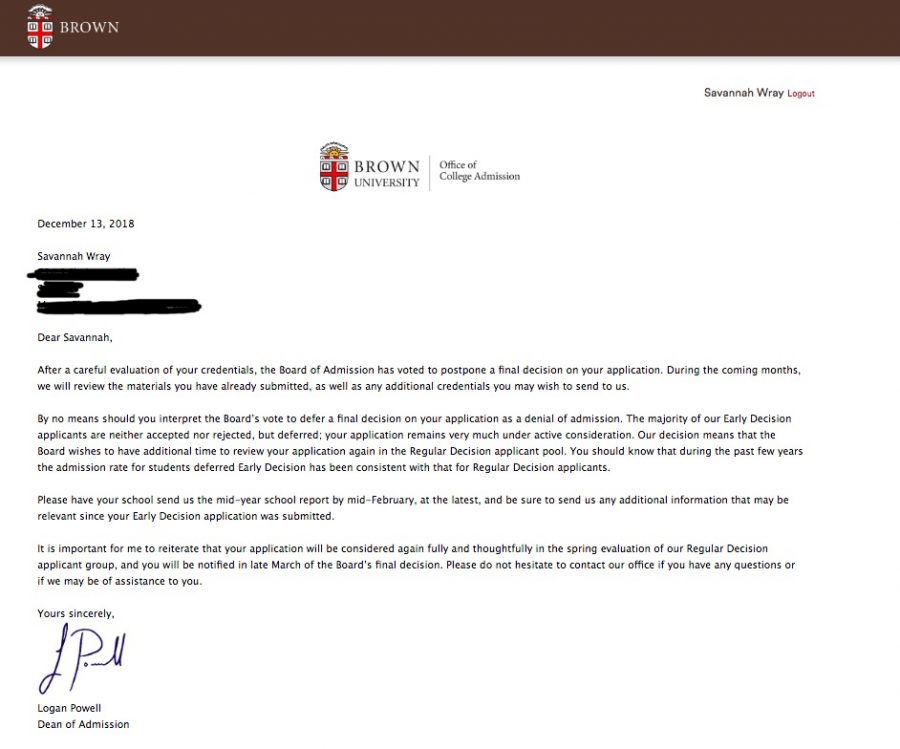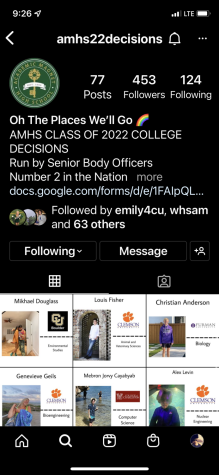What To Do If You Got Deferred From Your Dream School
Not Accepted or Rejected, So What Do You Do Next?
So results for your dream school which you applied early action/early decision to come out. You anxiously go on the applicant portal, and then see . . . that you got deferred. The world is ending. Your life is crashing into a million pieces. You’re in this strange limbo state of not being accepted or rejected, and now you have to anxiously wait for three more months to receive your final decision AND write a billion more college essays in the next few weeks. Great.
You might feel terrible about it for a while, but I promise it won’t stay like that forever. You’ll be able to use this deferral as a way to grow and improve your regular decision applications.
I must admit, however, that my deferral stung. A lot. And although the probability of being deferred and then accepted is rather low for most schools, it is definitely a possibility (but you probably shouldn’t get your hopes up too high). For example, both Michael Pi and Adam Ziff, former AMHS students, were deferred from Princeton University early action and accepted regular decision, a rather impressive albeit rare feat. However, many Ivy League schools are notorious for deferring most of their early applicants. In comparison, Stanford is known to reject most of their early applicants and defer less students than they accept, meaning if you’re deferred they are still seriously considering your application.
Some students who have been deferred this year have been learning to cope with it by creating support groups for deferred students. Abby Keating (12) has created a Purgatory Club, for example, as a support group chat for deferred students. Caroline Young (12) has dealt with it by saying, “Who cares, I didn’t want to go there anyways. Jokes on them.”
So you’re probably curious: what could you do to increase your chances of getting in?
1. Don’t Let Senioritis Kill Your Motivation
Oftentimes, colleges really want to see if you are still excelling in your class in senior year and not slacking off, since they are aware that senioritis often plagues many seniors around the country. Senioritis is known to lead to a large decrease in senior year grades in students around the country. As a result, one way to make yourself stand out as a good applicant is to maintain good grades in your senior year courses.
2. Send an Update Letter to Your Admissions Officer
Unless specifically requested not to, it is often a good idea to send your regional admissions officer an email or letter detailing what you’ve done since they first reviewed your application. This will inform them that you have persisted in keeping up your extracurricular activities and also tell them of any other accomplishments you have obtained in the meantime. For example, if you have presented your thesis, it may be beneficial to update them about your thesis. You may also want to use this letter to explain any extenuating circumstances or aspects of your application that you believe are important but not emphasized enough in your original application. Usually it is also good to include a line about how the college still remains your first choice school, and if accepted you will accept their offer of admission and attend.
3. Focus Your Efforts on Applying to Other Schools
Although there is still a little bit of hope that you can be accepted to your early school in the regular decision round, you should start to focus your efforts on falling in love with other schools that you are applying to regular decision. There are lots of other schools that you could be just as happy or even happier attending. Plus, at many of these schools, there are so many qualified applicants that it ultimately comes down to a little bit of luck and some of the more subjective parts of the application. Maybe the admissions officer thinks you wouldn’t be the best fit on that school’s campus, and there could be another incredible school that would be better suited to your personality. Or perhaps you weren’t completely satisfied with your regular decision applications, and you can focus more effort into refining your essays and the rest of your application for regular decision schools over winter break.
Ultimately, it is important to remember that college decision results do not define you and are not an indicator of how qualified or smart you are. In the end, everything will work out for the best, and you will be able to attend the school that is right for you. Good luck with the rest of your college applications!








